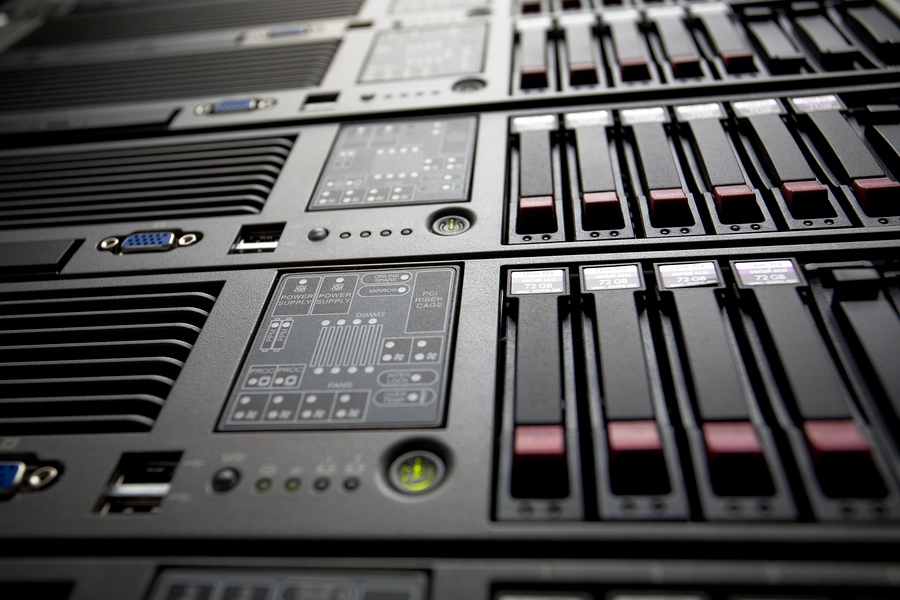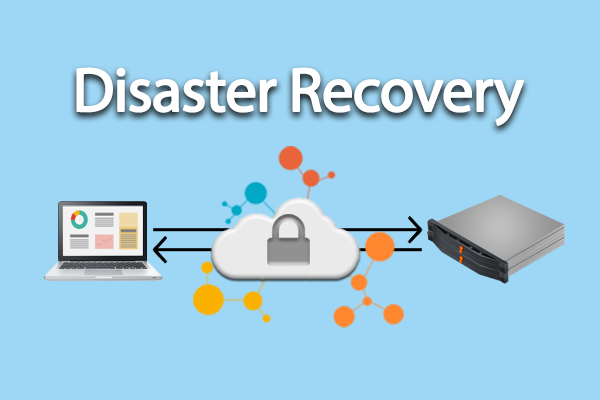Archive for March, 2020
4 Benefits of Web Hosting on a Dedicated Server no comments

Both large and small businesses are faced with a wide variety of choices and options when it comes to finding a web hosting solution for their website, company email, and data. One option is shared hosting, in which a single server’s resources are shared by a number of different websites and users.
However, if you’re looking for more power, control, and flexibility, the solution for you may be a dedicated server. With a dedicated server, you and your business have exclusive access and use of that server’s resources. You also have the flexibility of customizing the server’s CPU, RAM, and disk space based on the needs of your website and business.
Let’s take a look at 4 specific advantages of choosing a dedicated server:
1. No Shared Resources
When using a dedicated server, every bit of power, storage, and bandwidth is exclusive to you and no one else. Not only will this give your business more room to work with and expand, it will also prevent issues with your site caused by other websites. For example, if you’re site is hosted on a shared server where there is another website that is being attacked or hogging up resources, this can affect the performance of your company’s site.
2. Flexibility & Customization
A dedicated server allows your business to customize the hardware and software based on your company’s unique needs. Things like CPU, Memory, Hard Drive, even the speed of the server’s network port, can all be customized and upgraded on dedicated servers. With shared hosting, you are limited to the software already installed on the server, and sometimes it may lack a requirement or feature your business needs. But with a dedicated server, you have full flexibility over which software the server runs, even down to the Operating System.
3. Administrative / Root Access
Another downside of shared hosting is the lack of Administrative or root access to the server. This limitation affects what software you can install as well as the settings and options that you can configure on the server. This can greatly impact the potential of what you are able to do with your website. Another advantage of administrative/root access is the ability to better monitor and troubleshoot your website, with full access to the server’s logs.
4. Dedicated IP Address
Each dedicated server comes with its own dedicated IP address. With shared hosting, your site may be sharing an IP address with multiple websites. If your website happens to share an IP with a site that spams or contains malware, this can cause multiple problems. Your website can end up getting blocked, your email rejected as spam, even your search results can be affected. Another thing to consider is whether or not you’ll be running an e-commerce or selling things on your site. If so, you will need to have an SSL for your site, which in turn requires a unique dedicated IP.
TurnKey Dedicated Servers
Now if you’re worried that you’re not tech savvy enough to run your own dedicated server, consider the option of going with a Managed Dedicated Server solution, which will provide many additional benefits on top of what’s listed above. Also if cost is a concern, check out TurnKey Internet’s ‘Best Value’ Dedicated Servers. There are countless other advantages to using a dedicated server, however the 4 above are some of the most notable. So before you decide to host your website on a shared server, consider the added flexibility, reliability, and performance that only a dedicated server can provide.
Follow Us :Share :
Disaster Recovery in the Cloud no comments

The cloud has changed the way that many businesses handle disaster recovery and business continuity planning. One of the biggest changes the cloud has brought to the business world is the ability for smaller organizations to use the type of data recovery systems that historically were only available to large organizations.
Now, any business’ disaster recovery plan can include complete data backups that are off-site and redundant. Prior to cloud backup systems, businesses were often limited to storing data backups on-site. If a fire broke out or servers were damaged in some other way, on-site data would be lost. Off-site backups frequently required manually making copies of data and/or moving storage media to a different location before cloud computing streamlined the backup process.
The cloud now allows data to be saved automatically, and many businesses are working off of cloud-based systems at all times. Another major benefit of using the cloud for backups is that many other types of data storage have significant failure rates. Tapes, in particular, were used for decades as a method of storing backup data, but it has been found that they have about a 10 percent failure rate.
Cloud computing offers redundant file storage, so unlike with tapes or even hard drives that could potentially fail, data saved to the cloud is almost guaranteed to always be available. Systems can be set in place to backup data automatically, and cloud storage allows you to keep multiple copies of records with different time-stamps.
Another major benefit of using these types of backup systems is that they can be used almost anywhere. So long as an employee has access to the internet, they should be able to log into the cloud and access business files and applications.
The Cloud is helping businesses recover their most critical systems and data faster, while also avoiding the expensive infrastructure costs of onsite or in-office data centers and server rooms. Leveraging a cloud backup solution is by far one of the best, most cost effective ways to protect your company and ensure business continuity when disaster strikes.
TurnKey Internet combines advanced technologies with an easy-to-use graphical interface that allows the scheduling and configuration of the backup of your critical data. Entire operating systems, whether it be physical or virtual, databases or individual files and folders can be safely and securely replicated to TurnKey’s state of the art, secured data center facility. Data can then be restored into our on-site cloud environment or quickly and securely pushed back down to your location.
Protect anything, anytime, anywhere.
Contact TurnKey Internet today for a FREE consultation regarding cloud based disaster recovery solutions for your business.
Follow Us :Share :
Data Centers: Better Protection For Your Company’s Data no comments

The question of where to store data and sensitive information continues to concern many businesses. If you are like most companies, you worry about the security of your data. You may be thinking that you need to keep the data as close to you as possible, storing it at your own office server room where you can “keep an eye on everything.” How could you possible know what is happening with your data at servers far away from your office space?
The fact of the matter is, however, that your data is much more secure at a data center than on your in-house servers. A data center is able to offer you many more security features and guarantees for your data than you have in your own space. A quick look at the many benefits of cloud storage may help convince you.
- Data security – One of the main priorities of a data center is security. With some high-profile companies becoming the victims of data breaches in the last couple of years, data centers have upped their investments in access control, identity management, intrusion prevention and protection. These improvements have resulted in increased security protocols and more protection for communication between users and servers.
- DDoS protection – Distributed Denial of Service (DDoS) attacks are designed to overwhelm servers, flooding them with requests until the security breaks down and actual user needs are ignored. Such an attack can derail a business quickly, losing revenue, customer trust and authority. Data centers are now providing services that monitor and protect against DDoS attacks.
- Reduced in-house data costs – Migrating all of your IT infrastructure to a data center will allow you to reduce the size and cost of your on-site location. For example, you will be able to remove servers, lower your software costs and potentially reduce IT staff without compromising the integrity or security of your data. Most data center solutions are paid on an as-needed basis, so you will only pay for the amount of server and infrastructure capacity that your business needs, and you can change that amount at any time.
- Constant availability – Data centers are exceptionally reliable. The connection is on 99.99 percent of the time, only going down for maintenance, and you will have access to your applications and data at all times and from practically anywhere.
- Improved mobility and collaboration – Cloud storage is available to those who need it no matter where they are located. With today’s internet connections via tablets and smartphones, you will be able to access your data and your applications no matter what you are doing. You can also share your information and conduct collaborations via shared storage capabilities offered by data center providers
Once you have decided that moving your IT infrastructure to a data center is the right decision for your business, you will need to find the right provider. You are placing all of your important data in the hands of this provider, so you must make sure that you choose the right one. Technology is constantly changing and improving, and you need to be able to trust that the data center you choose will keep up with the evolution of security needs. Find out whether there are security protocols in place, including:
- Physical security of the data center
- Environmental controls
- Back-up measures for power and internet
- Back-up measures for your data
- Technical support when you need it
Frequent system audits are also necessary in order to ensure that all servers meet or exceed industry standards for data security. When you are searching for a data center, ask potential candidates about their compliance to SSAE-16/18 SOC 1 and SOC 2. This set of standards measures the amount of control that a service organization maintains over your sensitive data and financial information. An audit will report any flaws in data flow.
You should also inquire about compliance to the Health Insurance Portability and Accountability Act (HIPAA). This regulation ensures the security and privacy of private health information that is stored on cloud services.
If your data center choice is compliant with both of these standards, you can rest assured that your sensitive data will be monitored and its integrity will be maintained.
TurnKey Internet owns and operates its own private, SSAE 18 SOC 1 & SOC 2 certified, HIPAA compliant, data center located in Albany, NY. Owning our data center, we have been able to design, build and maintain every aspect of its construction to provide an ideal hosted server environment. This allows us to provide our clients fast, secure and reliable performance at all times. We’ve also been able to leverage the state-of-the-art in green technologies, making our data center among the most energy-efficient world-wide. For more information about TurnKey Internet’s Green Data Center, visit: https://www.turnkeyinternet.net/datacenter
Follow Us :Share :



